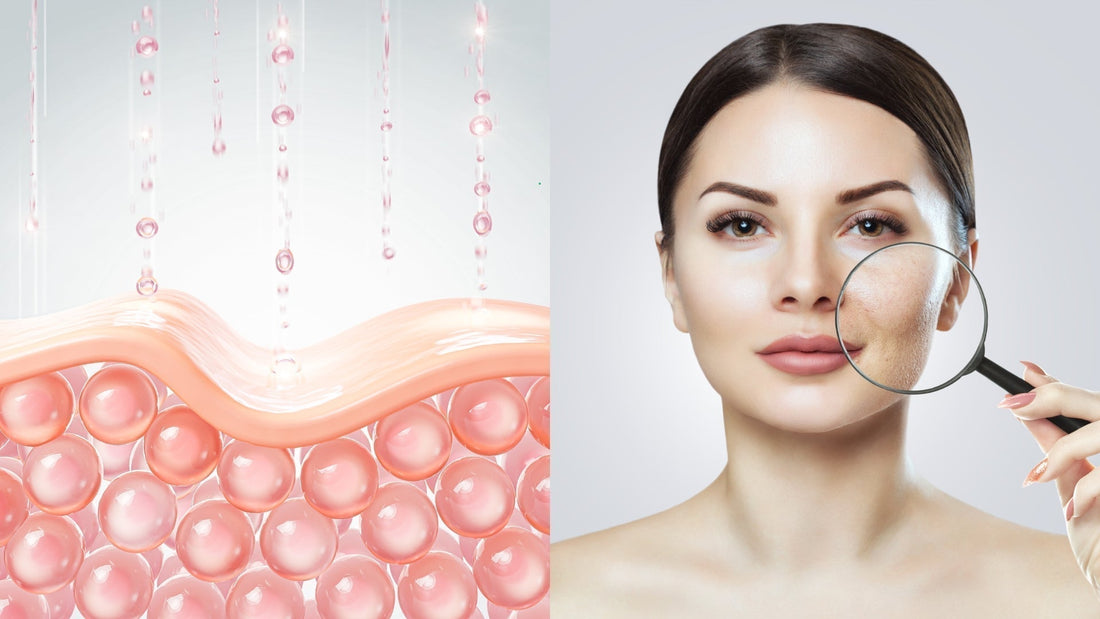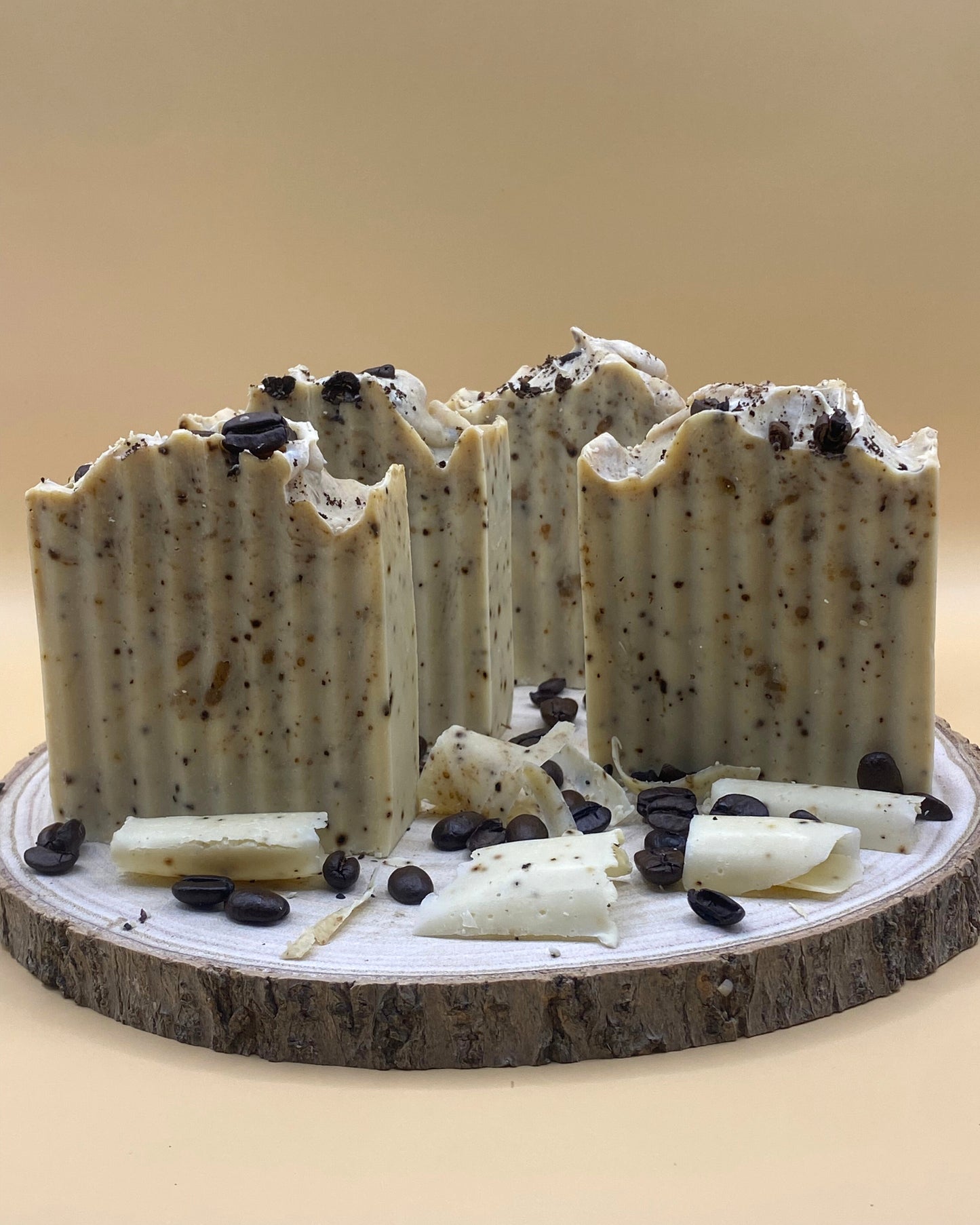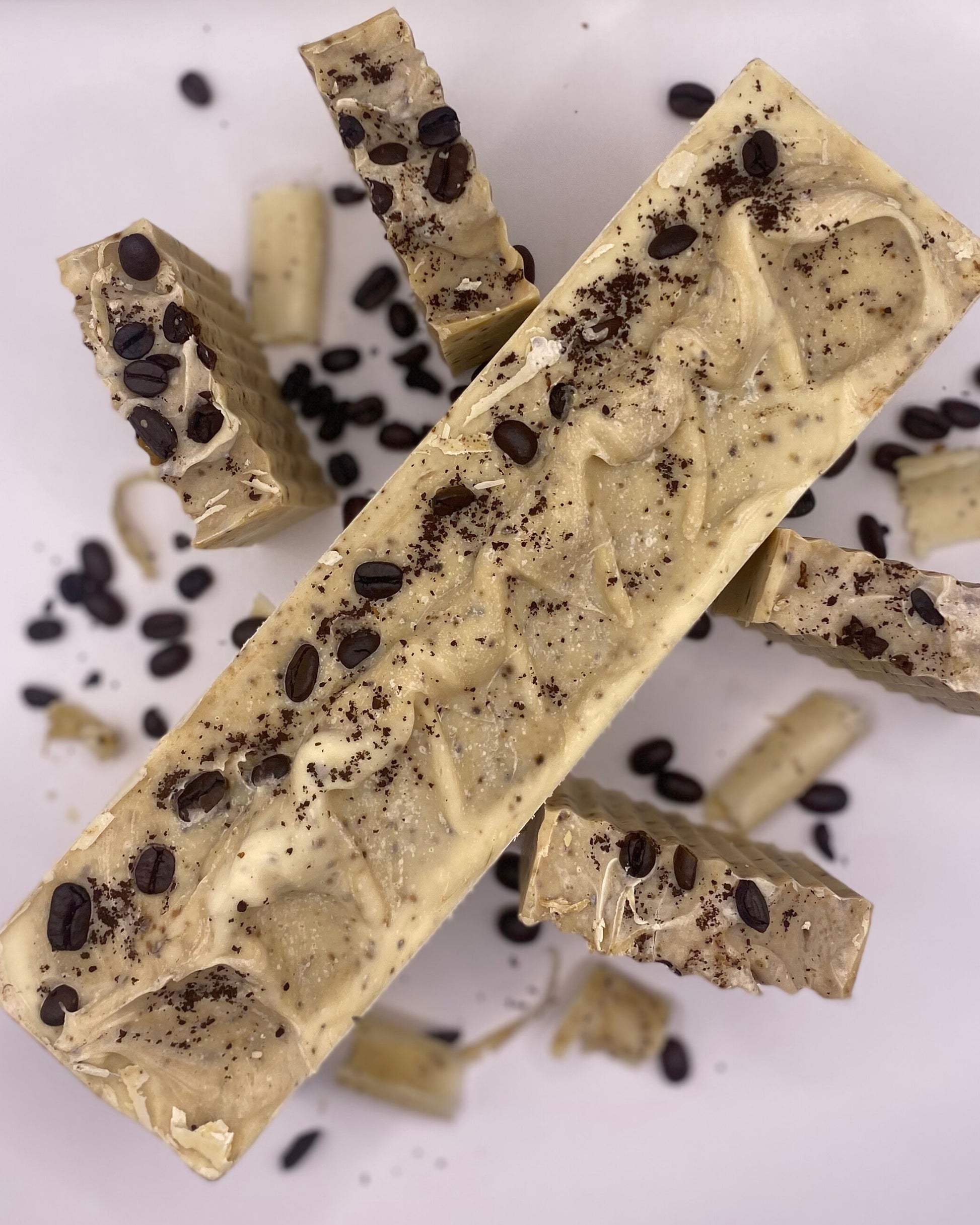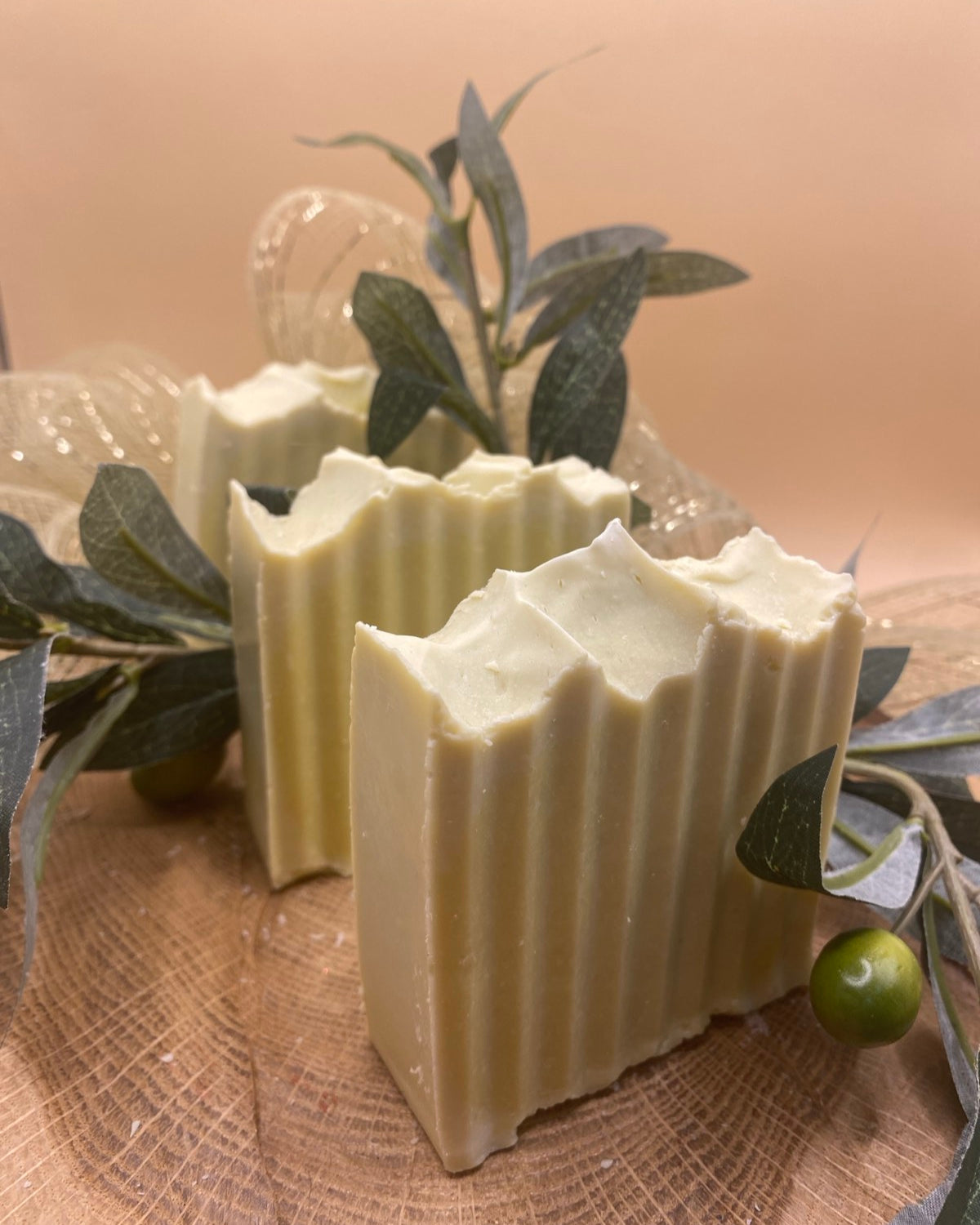
Why Your Skin’s pH Matters (And How the Wrong Soap Can Wreck It)
Konstantina SotiroglouPicture your skin as its own tiny ecosystem—delicate, complex, and in need of balance. One crucial piece of this balance? Skin pH. Get it right, and you support a healthy microbiome, moisture retention, and resilience. Get it wrong—and your skin’s protective barrier crumbles. Here’s the science-led scoop on why pH matters—and how Deos Co.’s artisan soaps can restore harmony.

1. What Is Skin pH—And Why Is It Acidic?
-
The top layer of your skin—the stratum corneum—has a natural acidity, typically ranging from 4.0 to 6.0.
-
This “acid mantle” forms from fatty acids in sebum, sweat components like lactic acid, and amino acids.
-
Why acidic? It helps maintain healthy enzymes (like lipid-processing β-glucocerebrosidase), keeps the skin hydrated, and fosters a strong microbiome.

2. The Science of pH Gone Wrong: What Happens with Alkaline Soap
Most conventional soaps fall into a harsh pH 9–11 range. When used:
-
The skin’s pH spikes—remaining elevated for hours—compromising skin structure.
-
This distortion damages lipids in the stratum corneum, causing moisture loss, dryness, flaking, and even cracks .
-
Alkaline environments disrupt your microbiome, encouraging pathogenic bacteria growth and weakening immunity .
- It’s tied to increased irritation, eczema, acne, rosacea, and other conditions .
3. How Healthy pH Fuels Skin Resilience
Maintaining that natural pH range helps:
-
Support beneficial skin flora – Like Staph. epidermidis, which produce compounds that inhibit cancer and pathogens.
-
Enhance barrier repair – Acidic pH enables enzyme functions that rebuild lipid matrices—key for elasticity and grime protection.
-
Prevent irritation – Balanced pH reduces redness, tightness, and dryness.
- Protect against infections – Many pathogens struggle to survive in properly acidic environments.
4. Evidence You Need to Stop Using Alkaline Soaps
- A study analyzing commercial soaps/shampoos found most exceed normal skin pH—and using them elevated skin pH, irritability, dehydration, and altered flora.
- Dermatologists warn repeatedly: “Many oppose regular soap use—it disrupts the acid mantle and protective barrier”.
- Acidic/neutral cleansers cause significantly less barrier damage, preserving hydration and microbiome integrity.

5. Meet DEOS Co.: pH-Friendly, Ancient Greek Wisdom 🌿
At Deos Co., we meticulously craft soaps to nourish—not strip:
-
We formulate with plant-based oils, natural glycerin, and botanicals to maintain your skin’s pH around 4–6.
-
Ingredients include olive oil, lavender, charcoal, coffee, and clay—all chosen for their skin-supportive and soothing properties.
-
Unlike mass-produced soaps, we never rinse glycerin out—it remains to moisturize and maintain healthy skin biology.
- We ensure every recipe aligns with skin microbiome needs and supports protective enzymes.

6. How to Tell If Your Soap Is Sabotaging Your Skin
Watch for these signs:
|
Symptom |
What It Means |
|
Dryness & flaking |
Lipid barrier is stripped |
|
Redness & itchiness |
Elevated pH triggers inflammation |
|
Tightness after washing |
Acid mantle disrupted—oil barrier compromised |
|
Sensitivity to products |
Barrier damage lets irritants penetrate easily |
Your skin is literally telling you—it’s time for a pH-conscious soap.
7. How to Choose the Right Soap: 5 Pillars of Skin Health
-
pH ≤ 6 – Ideally between 4.5–6.
-
Natural & nourishing ingredients – Plant oils, shea butter, clay, charcoal.
-
Retain natural glycerin – For moisturizing and balancing pH.
-
Free from harsh chemicals – No sulfates, parabens, or synthetic fillers.
- Transparent formulation – We share every ingredient so you can trust what you’re using.
🔍 Let’s Break Down “Free from Harsh Chemicals”
Here’s what Deos Co. means when we say our soaps are formulated with absolute care:
🚫 1. No Sulfates (SLS/SLES)
What they are: Strong synthetic detergents (e.g., Sodium Lauryl Sulfate) used to create foam.
Why we avoid them: These surfactants strip natural oils, disrupt your skin barrier, and are known to cause dryness, irritation, and flare-ups—especially for sensitive, eczema-, or acne-prone skin.
🚫 2. No Parabens
What they are: Synthetic preservatives added to extend shelf life.
Why we avoid them: Parabens are known endocrine disruptors—chemicals that mimic estrogen and may interfere with hormone function. Many clean beauty experts and researchers recommend avoiding them.
🚫 3. No Synthetic Fillers or Harsh Preservatives
What they are: Cheap, inactive ingredients or harmful additives like 1,4-dioxane, formaldehyde releasers, phthalates, and quats.
Why we avoid them: These are linked to long-term health concerns—including potential carcinogenicity—and can block pores or kill your skin’s beneficial bacteria.
🚫 4. No Synthetic Color Dyes
What they are: Artificial pigments, often petroleum-derived, added solely for visual appeal.
Why we avoid them: They serve no skincare benefit and have been linked to allergic reactions, especially in sensitive individuals.
🚫 5. No Synthetic Fragrance
What it is: “Fragrance” on a label can represent a cocktail of hundreds of undisclosed chemicals, including phthalates.
Why we avoid it: Synthetic fragrance is a leading cause of contact dermatitis and allergic reactions. Instead, we use pure essential oils—or no fragrance at all.
🚫 6. No Titanium Dioxide (TiO₂)
What it is: A whitening agent used to make soap appear “pure white.”
Why we avoid it: While generally considered safe topically, TiO₂ in nanoparticle form raises concerns. The EU banned it in food over potential DNA damage, and airborne TiO₂ is classified by IARC as a possible carcinogen. We prefer natural hues from botanical ingredients.
🫧 Why DEOS Co. Soaps Are Different

 'Olympus Brew – The Coffee & Shea Butter Vitality Ritual'
'Olympus Brew – The Coffee & Shea Butter Vitality Ritual'
8. Healthy Skin Starts Here

9. Make the Switch: 14‑Day Deos Co. pH Reset Challenge
Try it yourself:
-
Use a Deos Co. bar daily for 14 days.
-
Observe: improved hydration, reduced sensitivity, more radiant texture.
- Post your before/after story and tag us with #DeosPHReset—we love to celebrate your glow!
10. The Takeaway
Your skin’s pH is non-negotiable—it’s the foundation of skin health. DEOS Co. soaps aren’t just luxurious—they’re scientifically aligned with what skin truly needs. Crafted with nature and conscious chemistry, each bar keeps your barrier intact, nourishes your microbiome, and elevates your ritual.
✨ Trust your skin—choose wisely.
📚 References
- Skin pH, microbiome & acid mantle: Wikipedia, The Secret Life of Skin, Wikipedia, UCC Today, MDPI, Vogue
- Soaps increase pH, dryness & irritability: ResearchGate+1TIME+1
- Single wash raises pH for hours: PubMed
-
The Relation of pH and Skin Cleansing: PubMed
-
Microbiome benefits, pathogens inhibited at acidic pH: PubMed Central
-
Enzymes & barrier function rely on acidity:
https://www.ucc-today.com/journals/issue/launch-edition/article/skin-ph-and-barrier-function?utm_source=chatgpt.com

